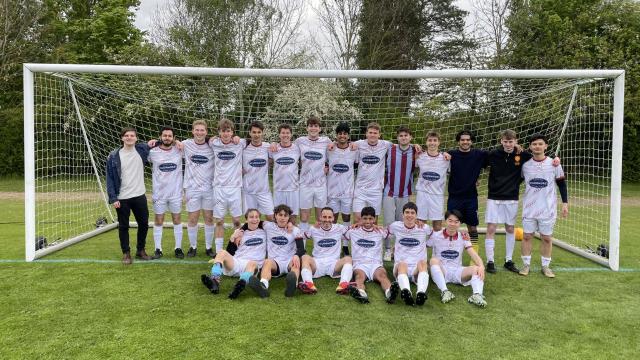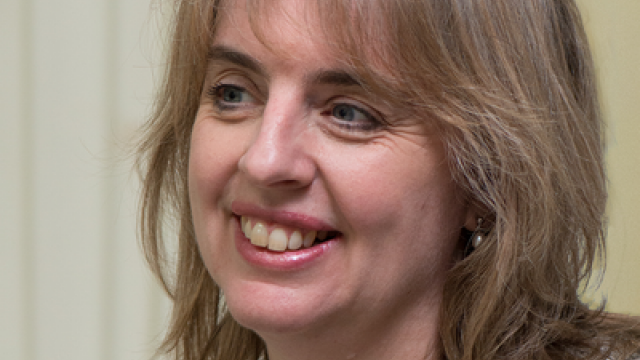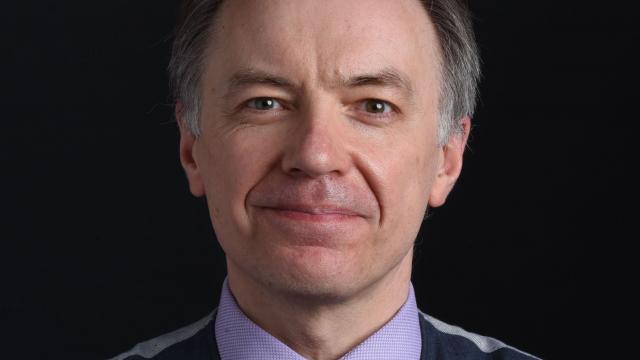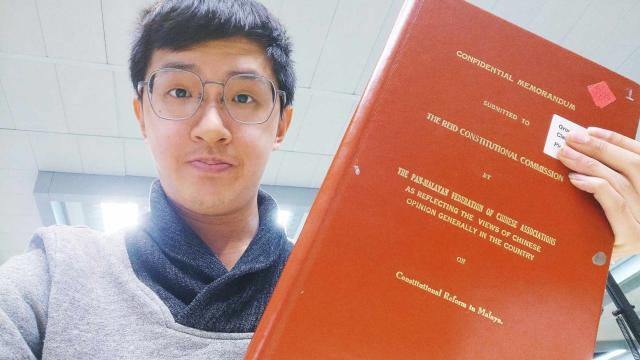
Westminster, Europe and the Northern Ireland Protocol
This was a tumultuous week for UK-Irish, UK-EU, and Westminster-Belfast relations following Liz Truss’s threat to scrap parts of the Northern Ireland Protocol unless the EU showed more flexibility on trade arrangements. Tony Connelly, Europe Editor at RTÉ News, and Professor Catherine Barnard, professor of EU law at the University of Cambridge, explore the current state of the Protocol, ongoing negotiations and potential future steps for all involved.
Will the EU or the UK government back down? Why did Liz Truss bring a gun to the table now? What would triggering Article 16 mean in reality? Is Boris Johnson only thinking of his own political future? Does the UK government have any strategy at all? And we considered how the EU may retaliate if the UK government unlawfully triggers Article 16.
Scroll on to discover
- Executive summary
- About the speaker and discussant
- Watch the conversation
- What was said?
Executive summary
- Professor Barnard set out the legal obstacles to the triggering of Article 16 and the possible routes the UK government may take, and the potential responses the EU could make in reply. She highlighted that Article 16 has ‘built-in delaying mechanisms’ which prevent it from being a ‘big bang’ if activated, and that it categorically cannot be used to redraft the entire Protocol.
- Tony Connelly shared his understanding of the reaction from EU member states and EU officials to Truss’s threat. There was a strong desire not to capitulate to UK demands and there was exasperation at the UK government’s approach. He suggested Truss was attempting to bring a ‘gun to the table’ in order to provoke reaction.
- Connelly laid out the political perspectives from both Brussels and Westminster, arguing that Boris Johnson was attempting to placate the DUP and ERG with a hard-line approach whilst also appearing amenable and statesmanlike to the EU and international community.
- The discussion looked to the future and considered what 2024 may look like. How might the Protocol debate pan out before then?Connelly argued that the EU would be waiting for further statements from Truss before reacting and that Johnson was unlikely to want to be seen making a deal with the EU until after the Conservative Party Conference in September 2022.
- Connelly also argued that in polling in May 2022, the Protocol was not the main concern of voters in Northern Ireland, who were more troubled by issues of healthcare, housing, and the cost of living. It remains a topic capable of exercising strong emotional responses, however.
About the speaker
Tony Connelly is Europe Editor at RTÉ News, Ireland’s public broadcaster, and has covered EU and Irish affairs since 2001. He’s reported extensively on Brexit as well as reporting on conflicts in the Middle East, the Balkans, and Africa. Connelly is the recipient of two ESB National Media Awards, a European Journalism award, and a New York Festivals radio award. In 2019 he won the Outstanding Achievement Award at the 12th annual UCD Smurfit School Business Journalist Awards for his reporting on the Brexit negotiations. He is the author of Brexit and Ireland (2017) which was nominated for the Irish Non-Fiction Book of the Year award 2018, and Don't Mention the Wars: A Journey Through European Stereotypes (2009). Connelly was born in County Derry and is a graduate of Trinity College Dublin and the London School of Journalism.
About the discussant
Catherine Barnard is Professor of EU Law and Employment Law at the University of Cambridge. She is a fellow and Senior Tutor at Trinity College, Cambridge. In 2019 she was awarded the Pilkington Prize for Teaching at Cambridge and in 2020 she was elected a Fellow of the British Academy. Professor Barnard has authored several books on EU law including EU Employment Law (2012), The substantive law of the EU: the four freedoms (2016), and co-authored European Union law (2017) with Steve Peers.
Watch the conversation
What was said?
In the days preceding our meeting, Foreign Secretary Liz Truss had threatened to unilaterally scrap parts of the Protocol unless the EU was prepared to show more flexibility to Britain’s wishes. Prime Minister Boris Johnson had travelled to Belfast for meetings with politicians. Taoiseach Micheál Martin issued a statement urging Johnson to resume substantive talks with the EU to find a solution. On the evening the IOI series met, EU member states and officials had yet to respond to Truss’s statements.
Understandably given the turmoil of the hour, our main speaker, Tony Connelly, was delayed in attending the meeting due to his professional commitments, so Professor Catherine Barnard made an intervention in his place, laying out the legal text of the Protocol – in particular Article 16 ,which allowed for adjustments to the Protocol arrangement. She highlighted the legal issues surrounding the Protocol: that Article 16 doesn’t allow for the complete redrafting of the Protocol and its textual emphasis is on short, sharp, and focused adjustments or alterations. Another issue lies in Article 16 being a ‘safeguard clause’ and therefore the language is about temporary measures. The procedure, should Article 16 be triggered, is clearly set out and can be described as a ‘slow burn’ measure rather than a ‘big bang’. It has a built-in delaying mechanism which prevents any overnight change. Professor Barnard also laid out the different pathways events would take should the UK government trigger Article 16 lawfully or unlawfully, and the legal options the EU could take in retaliation should the latter happen and the EU Withdrawal Agreement be breached.
Tony Connelly joined and was able to give us up-to-date information regarding developments. Tony Coveney (Republic of Ireland Foreign Secretary) was meeting with Maroš Šefčovič (EU Chief Negotiator on Brexit) that evening, and both men would be looking to see how the EU may respond. Connelly stressed that there were no scheduled briefings or statements by the EU for the next day but that Micheál Martin had spoken with Charles Michel (president of the European Council).
More generally, Tony provided insight into the perspective of Brussels . There was ‘exasperation’ at the UK’s tactics and strategies and a reluctance to fall into a trap of reacting quickly. With Truss due to make a speech the next day , Connelly expected most states to wait to see what she delivered before responding. He argued that the EU was ‘transfixed’ by the war in Ukraine and that Truss may be attempting to ‘place a gun on or near the table’ in order to jolt them out of torpor on the Protocol.
UK legislation that would cut ties with the EU and allow for the rewriting of the Protocol had been in the works for a while by the UK government. Connelly pinpointed David Frost’s speech in September 2021 as the moment the government started working on it. He explained that a key aspect is the EU Withdrawal Agreement which enshrines the Withdrawal Agreement into British law and that the UK government may revoke this aspect of the law in order to give them a ‘free hand’ to disapply various aspects of the Protocol. Although it would be a significant step to signal their intention to repeal this aspect of the law, Connelly noted it would be much harder to get it passed through the House of Lords.
What’s the motivation behind the UK government triggering Article 16? Connelly considered Johnson to be ‘trying to ride two horses at once’. He pointed to the negative briefing towards Liz Truss coming out of Number 10 that painted Truss as a hard-line minister. According to Connelly, both Brussels and Dublin were somewhat cynical that this was a deliberate ploy to allow Johnson to be seen as emollient and statesmanlike in comparison. On the other hand, Johnson was keen to show the ERG that he means business and Truss’s hard-line approach benefits this aim. Triggering Article 16 would be another decisive move that may placate the ERG and the DUP simultaneously – although not intended as such, it will be interpreted as an immediate action that the DUP want.
Following David Frost’s departure from the position of Brexit negotiator, there has been a marked improvement in EU-UK relations and a new approach – Liz Truss wined and dined Maroš Šefčovič and it was felt on the EU side that she carried less baggage that Frost. Her role as Foreign Secretary had been seen as another benefit, with the EU hopeful that she would place Northern Ireland in a bigger context of the UK’s place on the world stage and what Washington would think. May’s events have unravelled this and the EU is unwilling to be seen to capitulate to Truss’s demands.
In the subsequent discussion between Tony Connelly and Professor Barnard, the pair spoke about the significance of 2024 in the timeline of the Protocol and questioned what the UK government’s strategy was. It will (in theory) see a general election in the UK and a consent vote on the Protocol just in Northern Ireland. Dr Niamh Gallagher pressed Connelly on why he thought Johnson was prepared to placate the DUP for ‘essentially anti-democratic’ behaviour. Connelly considered that Johnson had his own political future in mind, as well as David Frost’s strong Euroscepticism, and that he may lay into these tensions until after the Conservative Party Conference in September 2022, after which he may consider himself safe from internal challenge until 2024 and therefore prepared to do a deal with the UK. (Johnson was unseated from power in July 2022 following internal Conservative conflict regarding a series of scandals; Liz Truss was Prime Minister during the Conference itself, although she was then unseated from power herself and replaced by Rishi Sunak). Connelly is of the understanding that Johnson was genuinely affronted by the need for an Irish sea border, but Andrew McCormick’s testimony that he fully understood the decision before he took it would seem to contradict this. Connelly himself noted that Johnson is known for a casual approach and very possibly expected to be able to back out of the Protocol casually.
Dr Gallagher also asked Professor Barnard how lawyers will be able to get round the legal obstacles set out in the meeting; Barnard responded that ‘fudging it’ will be the only solution. Hardcore technical and legal work will be required from both sides, which fundamentally will need to be backed by political support to take place.
How do the people in Northern Ireland themselves feel about the Protocol? Connelly spoke about the polling during the Northern Ireland Assembly elections held at the beginning of May 2022 which found that for most people, the Protocol was not the most pressing issue of the day. Many were more concerned with the cost-of-living crisis, healthcare, housing, and the pandemic. This isn’t to say that the Protocol doesn’t evoke a strong emotional response, however, and Connelly argued that the tribal nature of Northern Ireland’s politics (in which he includes a new third centre-ground ) means that zero-sum political analysis is likely to come into play





